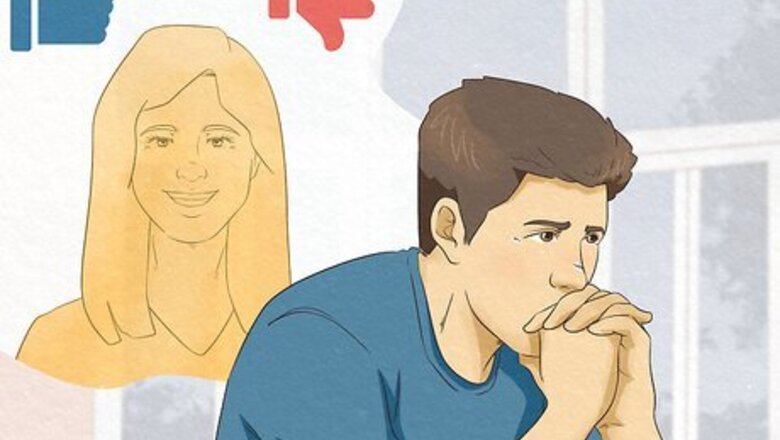
views
- When we fall in love, our bodies flood with chemicals that activate our pleasure center. This feels euphoric at first, but the withdrawals can be physically painful.
- Love leads to an increase in cortisol (the stress hormone) which can trigger feelings of anxiety. This anxiety can be discomforting emotionally and physically.
- The best way to heal from a stressful love experience is to look inward and determine the root of your insecurities through journaling and meditation.
Physiological Reasons Why Love Hurts

Love creates feelings of stress and anxiety in the brain. When you fall in love, your brain floods with chemicals that are associated with your body’s reward circuit. While these chemicals can activate feelings of passion, they also often trigger feelings of anxiousness. Your heart may start beating faster, blood may rush to your face, and you may start sweating. In addition, when you’re in love, your body releases the stress hormone cortisol, which can trick your brain into thinking you’re in a crisis and send you into fight-or-flight mode.
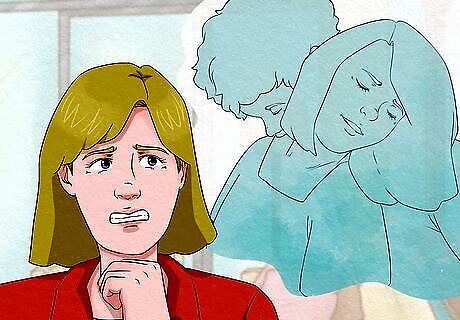
Love can cause unpleasant intrusive thoughts. When you first fall in love, hormones associated with attraction (testosterone, norepinephrine) take over which suppresses the amount of serotonin that your body receives. Serotonin plays a major role in regulating depression and anxiety. Without enough serotonin, you’re more likely to experience scary impulsive thoughts. Usually, intrusive thoughts are somewhat minor. You may get a sudden fear things won’t work out or you’ll embarrass yourself in front of the person you love. However, sometimes they can get more serious like fear you might hurt someone or do something illegal. If your intrusive thoughts start to become debilitating, talk to your doctor about SSRIs (selective serotonin reuptake inhibitors). SSRIs can help keep your mood stabilized and prevent these thoughts from becoming severe or out-of-control.
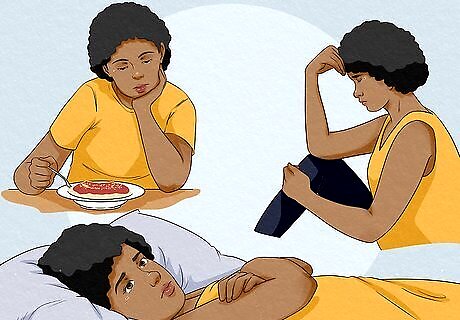
Love has an addictive quality that can lead to painful withdrawal. When you fall for somebody, your brain produces an increase in dopamine and oxytocin: 2 neurotransmitters that create intense feelings of pleasure. While this flood of chemicals often creates a warm, euphoric feeling at first, once things die down, the withdrawal symptoms can be physically and emotionally painful. Common oxytocin and withdrawal symptoms include loss of appetite, insomnia, feelings of loneliness, persistent crying, deep frustration or worry, and feelings of grief or loss. Dopamine and oxytocin are the main chemicals in intense drugs like opioids and cocaine. Therefore, while withdrawal symptoms aren’t as physically severe, they can feel just as emotionally painful.
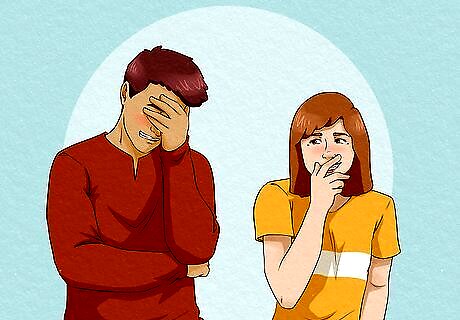
Love can make you feel embarrassed and confused. When you experience love, the neural pathway that regulates your social behavior and helps you judge other people shuts down temporarily. Without this extra line of defense, you may feel lost or less like yourself than usual. You’re also more likely to embarrass yourself, which can lead to feelings of shame.
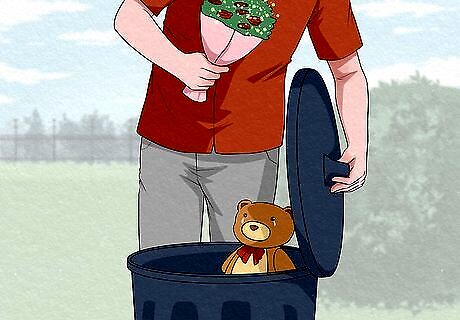
Rejection from someone you love can be as painful as physical injury. Research shows that social pain (like rejection or facing unrequited feelings from someone you love) is experienced in the same part of the brain as physical pain. Therefore, it’s totally reasonable for you to feel hurt by love not just in the metaphorical sense but on a concrete, physical level. In fact, because our brains are highly likely to replay uncomfortable social experiences, having to remember that heartache over and over can make love even more painful than physical injury.

Heartbreak can lead to broken heart syndrome, which is painful. In rare cases, the stress of a break-up or heartbreak can lead to broken heart syndrome, where your heart mimics the experience of having a heart attack. You may experience shortness of breath, weakened heart muscles, and severe chest pains. Break-ups and heartbreaks can be as traumatizing as deaths. Allow your body the time and space it needs to grieve and move on.
Emotional Reasons Why Love Hurts

When you fall in love, you might fear what comes next. When you truly love someone, the stakes are high and it’s common to worry about the future. It’s likely you’ll stress that your partnership won’t work out or your love will start to fade at one point (even if it’s going well; you’re only human). This worry can be exhausting and painful. Dealing with uncertainty in a relationship can feel scary, but try to stay open and communicative with your loved one. Show your affection through compliments, physical touch, and quality time. The closer you are, the less uncertain things will feel.
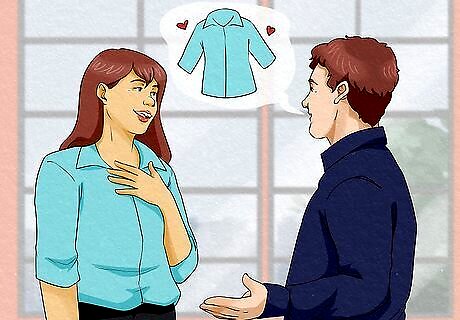
Love requires you to surrender control, which can feel scary. In the early stages of your relationship, you lack the power to make your loved one love you back. Then, if you get together, you can’t help alleviate their pain or work through their struggles for them. No matter what, you have to give up control in some capacity which can feel frightening and uncomfortable. Instead of focusing on what makes you feel powerless, try focusing on the things you have control over. For example, you can’t make somebody love you, but you can wear stylish outfits and compliment them regularly to show you’re attractive and approachable. Likewise, you can’t cure your significant other’s depression, but you remind them you’re emotionally available and actively listen to their feelings if they decide to share them.
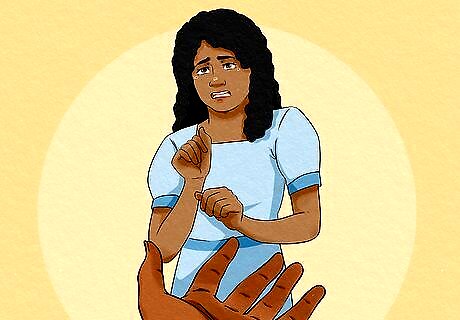
Change can be painful, even if it’s positive. Humans are wired to be afraid of change. Evolutionarily, a change in our environment often signaled danger or distress. In modern times, we still carry that fear with us. Even if your life is being altered for the better (a promotion, a new relationship, etc), you’re likely to feel tense and apprehensive. Love is a new, powerful feeling so it makes sense for it to be painful when it first hits you. The easiest way to embrace change is to accept your feelings, rather than fight them. Allow yourself to be afraid, angry, even a little sad that things might not be the way they used to.
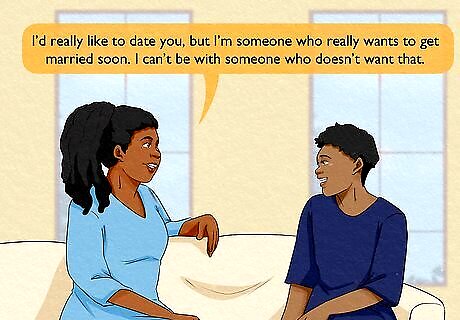
Love doesn’t always meet your idealistic expectations. When you first experience love, it’s normal to get caught up in the romance of it. Early on, you’re filled with adrenaline and you’re likely to envision your future with this person looking a specific way. However, life doesn’t always work out as planned and once the initial hormones die down, your relationships may not live up to your dreamy-eyed expectations. That disappointment can be painful. Try to set realistic expectations with your loved one by communicating your emotional needs and wants early. Directly stating what you expect from their partner will allow you to find common ground and the closeness you’ll feel with them will make the disappointment easier. For example, you might say “I’d really like to date you, but I’m someone who really wants to get married soon. I can’t be with someone who doesn’t want that.” This way, your loved one knows exactly what they’re signing up for and can respond accordingly.
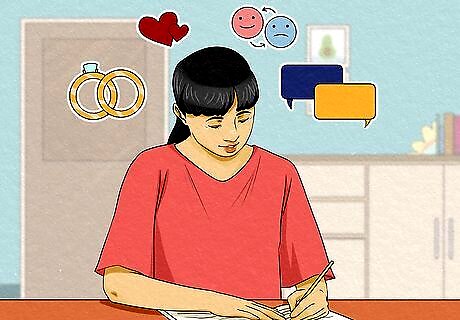
Love forces you to self-reflect. You can’t get to know your loved one on such an intimate level without learning more about yourself in the process. As your relationship faces challenges, it’s likely you’ll have to confront past traumas, unhealthy habits, and things you wish to change about yourself. You’ll undoubtedly grow as a person, but growth can be super painful. As you increase your self-awareness throughout your relationship, allow yourself to make mistakes. Practice mindfulness regularly to become more in touch with your emotions and create healthier habits, but remember that cultivating a better you takes time. It’s okay to have things you don’t like about yourself and it may take a while to overcome them.
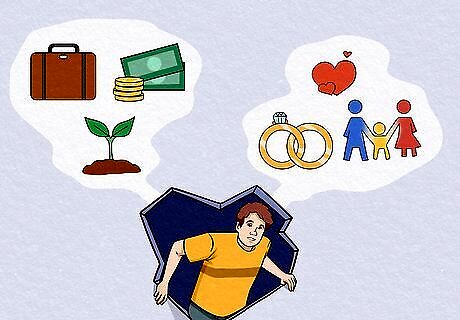
The responsibilities of commitment can feel overwhelming. If you love somebody and they love you back, the logical next steps are to start a relationship and try to build a future together. However, that’s easier said than done. Whether it’s a past trauma you still need to get over, different priorities, or different attachment styles, one or both of you might not realize you’re afraid of commitment, which can lead to isolation, frustration, and heartache. The best way to deal with fear of commitment is to set a timetable. Decide how much intimacy you both need and how long you’re willing to wait for the other person to reach that level. It may be a tough conversation, but it’s worth it in the long run.
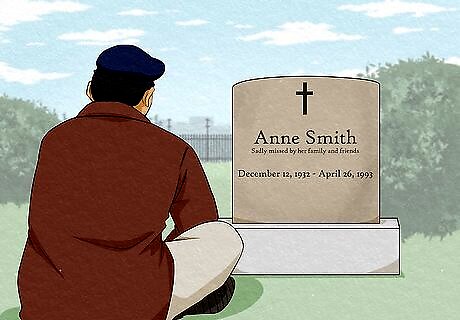
Love forces you to examine more existential fears, like loss. When you love someone, the stakes get higher, because you have a lot to lose. Confronting what might happen if your loved one disappeared from your life and how you’d handle it can be painful. In addition, some people self-sabotage out of fear. They find ways to put distance between themself and their partner to make the loss less painful. However, this distance only creates cracks within the relationship.
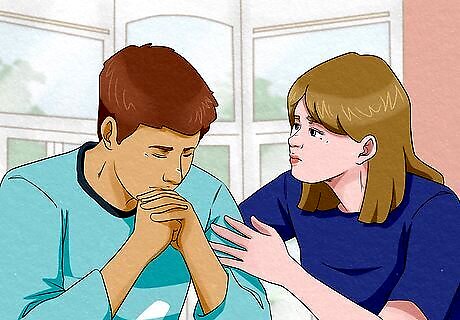
True love requires vulnerability, which is scary. Love means intimacy and intimacy means exposing your hopes, fears, joy, and shame to another person on a deep level. Exposing yourself emotionally can feel unsettling. If you’re trying to be more vulnerable in your relationship, open yourself up gradually. Start by sharing one intimate detail about yourself (a career goal, an embarrassing story, a political view). Ask your loved one to do the same. Keep at this every time you see each other.
What to Do if Love Feels Painful
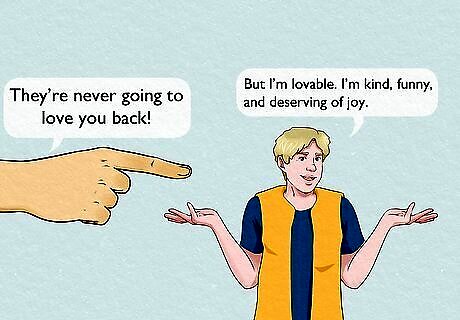
Accept the pain and joy of love as a complete experience. Feeling pain when you’re in love can feel abrupt and scary, but recognize that feeling unsettled is part of the experience too. Rather than subscribing to the belief that love should make you feel completely secure, allow your feelings to flow naturally. And don’t forget the benefits of love too: attraction, romance, hope, companionship, trying to be a better person, the list goes on! Another way to avoid victimizing yourself is to talk back to your inner critic. For example, if you notice yourself saying “They’re never going to love you back,” ask “Why not?” or even combat with “But I’m lovable. I’m kind, funny, and deserving of joy.”
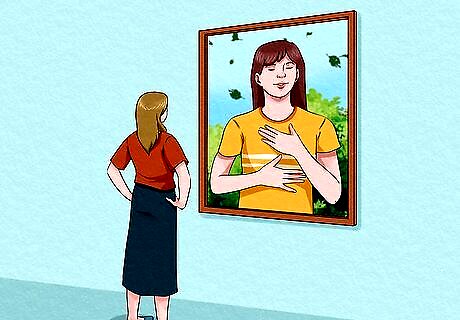
Practice introspection. Allow yourself time to self-reflect and determine if the pain you’re experiencing is the natural emotional roller-coaster of love or if it’s rooted in something deeper. Is your anxiety due to low self-esteem or relationship insecurity? Spend some time by yourself each day to try to get to the bottom of these issues. Even though it may sound dull, spending just 10 minutes a day alone with your thoughts can dramatically increase your self-awareness. It may help to write your thoughts in a journal so you have a concrete way to express yourself and a catalog that you can reflect back on.
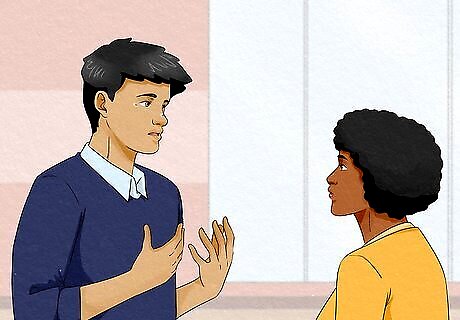
Communicate your feelings to your partner if you’re in a relationship. Communicating effectively with your significant other is arguably the best way to work through the painful emotions that come with love and relationships. Even if you can’t necessarily help each other work through each apprehension, being transparent builds intimacy, which will make you both feel more supported and quell a lot of those insecurities. The key to effective communication is to use “I feel” statements and avoid blaming language so you can truly listen to each other. For example, instead of saying “You make it seem like you’re going to leave me” (which places all the emotional responsibility on your partner), you might say “I feel like I’m going to get hurt because you get emotionally distant sometimes and that makes me feel isolated.”
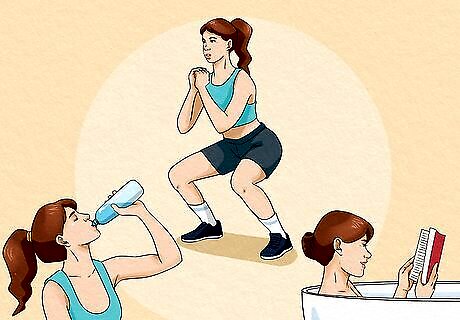
Nourish yourself emotionally with self-care. Treating yourself right is essential to recognizing that you’re worth loving and being more open to love in general. Practice self-care by prioritizing your physical health (eat a nutritious diet, drink plenty of water, exercise regularly), your mental health (meditating regularly and doing something creative like painting or writing), and your spiritual health (pray, spend time in nature, read tarot, whatever makes you feel more connected to the universe). Spending time with loved ones (going out for dinner together, playing sports, or just talking) is another way to allow yourself to replenish emotionally.
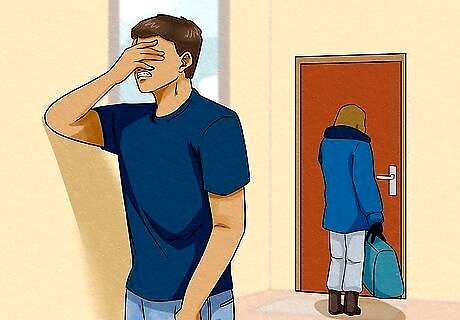
Walk away if you can’t take it anymore. After self-reflecting and leaning on others for support, you may realize the anxiety and potential heartbreak that comes from love is too much to overcome. If that’s the case, take some time to sit with your decision and walk away once you feel confident with your choice. If you decide to leave a relationship, find an appropriate time to break up with your partner and be honest and specific about your reasons why. If you’re struggling to get over unrequited love, recognize that you may not get closure. You can still have a happy, fulfilling love life later on. Continue to practice self-care and introspection, even if you’re not in love with anybody. The more you feel good about yourself, the easier love will be down the road.
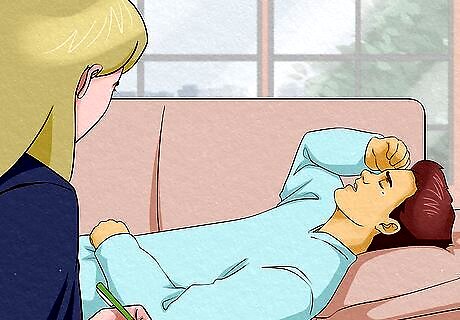
Talk to a therapist or counselor. Dealing with the complicated emotions may be too much to handle on your own. If you’re feeling overwhelmed by your feelings, talk to a therapist or relationship counselor. An expert can help you unpack past experiences, insecurities, hopes, and fears in a safe, controlled environment. Remember: therapy is what you make it. The more you share with your therapist about your love life, the more tools they’ll have to help you. Pretending everything in great won’t impress them; it’s their job to help you work through the less-than-flattering sides of yourself.
Is it normal for love to hurt?
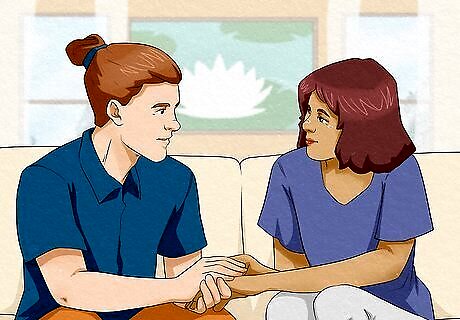
It’s totally normal and healthy to feel pain when you’re in love. We often think that, because love is a traditionally joyous feeling, it’s less pure or true if we experience depression, anxiety, or even physical pain alongside it. That couldn’t be farther from the truth. Millions of people experience fear (and even physical hurt) due to love every day. In fact, the emotional roller coaster you experience when you fall in love is a good sign your hormones are functioning healthily!


















Comments
0 comment